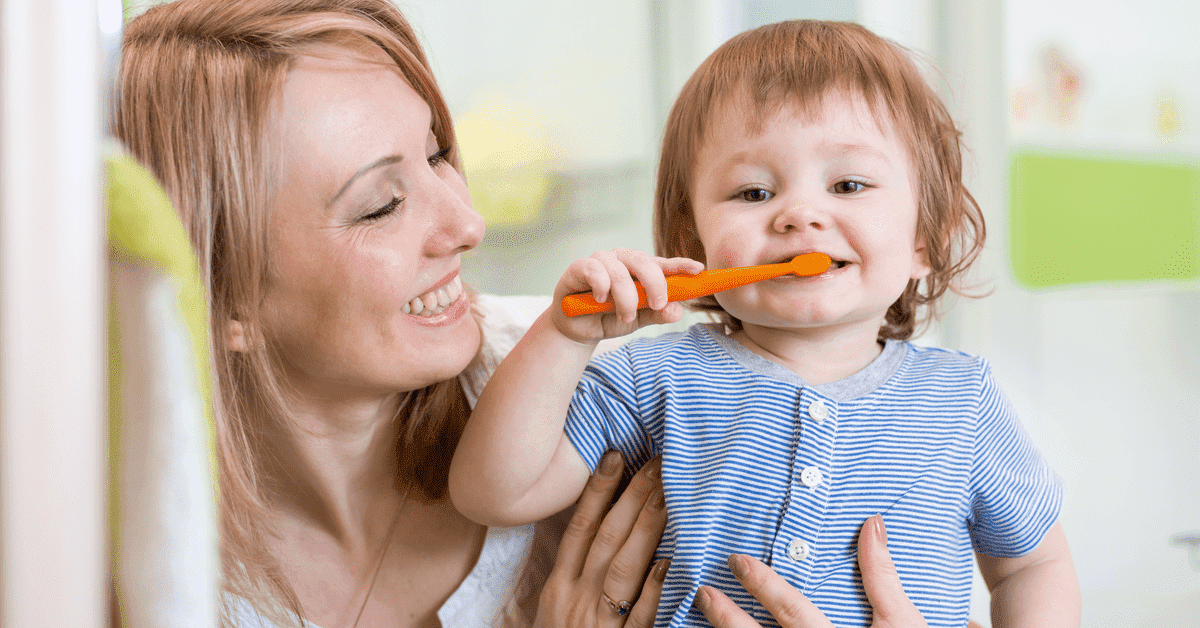What You Need to Know About Baby Bottle Caries and Milk Teeth
Salih ÖNDER2022-09-05T20:35:14+03:00What is the Importance of Having Milk Teeth in the Mouth?
The most important task of milk teeth is to ensure the proper nutrition of the child. In addition, the proper development of speech is also connected with the presence of milk teeth.
Milk teeth hold space for the permanent teeth that will replace them with the area they cover, and they guide them while the permanent teeth are erupting. Unfortunately, this natural place-holding function disappears with the early extraction of milk teeth
What is Baby Bottle Caries?
Especially at night, drinking milk with a bottle just before going to sleep and during sleep can cause the development of “bottle caries” on the baby’s teeth. Some families add sweeteners such as honey, molasses or sugar to the milk to increase its nutritional value. This further accelerates the development of “baby bottle caries”.
Bottled milk accumulates on the teeth after going to sleep. Since saliva secretion also decreases during sleep, the teeth cannot be cleaned in any way, and the caries-causing bacteria that are present on the teeth in the mouth cause an acidic environment. These acids disrupt the enamel structure that covers the entire surface of the teeth, causing chalky white spots to appear first, and then yellow-brown caries, which are defined as “baby bottle caries”.
In addition, giving the pacifier dipped in honey, jam or molasses is also effective in the development of “bottle bruises”.
Is It Possible to Prevent Baby Bottle Caries? What Should Be Considered?
· From the age of one, the baby should not be allowed to sleep with a bottle or on the breast. Sweeteners such as sugar, honey and molasses should not be added to the milk in the bottle.
· Teeth should be cleaned by wrapping a clean and slightly damp gauze cloth on the index finger or with the help of a finger brush after feeding, starting from the first eruption.
· It is important to take the baby to a pedodontist (children’s teeth specialist) regularly, especially from the first age, in terms of preventing period childhood caries (baby bottle caries).
· In between meals, fibrous foods, vegetables, fruits and nuts should be preferred instead of carbohydrate-based diet that sticks on the teeth as much as possible.
· Since the spitting reflex is not fully developed until the age of 3.5-4, teeth should be brushed without toothpaste or with toothpaste recommended by a pedodontist. Toothbrush should be as small as possible with soft bristles and should be replaced frequently. Brushing should be done under the control of parents and with their help until the school period.
What Kind of Problems May Occur If Baby Bottle Caries Is Not Treated?
The harmful effects of the bacteria that cause baby bottle caries cause the milk teeth to become painful and inflamed in a short time due to their structure. These developing dental infections cause the child to feel pain, to be restless especially when eating, and not to sleep regularly. If this infection continues for a long time, it can also damage the permanent tooth buds that develop under the milk teeth over time. Depending on this situation, it can be seen with discoloration and deformity when permanent teeth erupt.
Baby bottle caries, especially starting from the incisors of the upper jaw, causes great material losses in these teeth. This situation can cause problems in the child’s oral health, as well as in the child’s speech and aesthetic appearance.
A child with bottle rot encounters treatments such as root canal treatment, filling and extraction, which are very difficult treatments for his age in the early period when he is not ready at all. Most of the time, these treatments will need to be done under general anesthesia, as it is not possible to perform these treatments in normal dental units at young ages.
Kayseri Hospital
Chief Physician Dt. Zeynep CETIN

